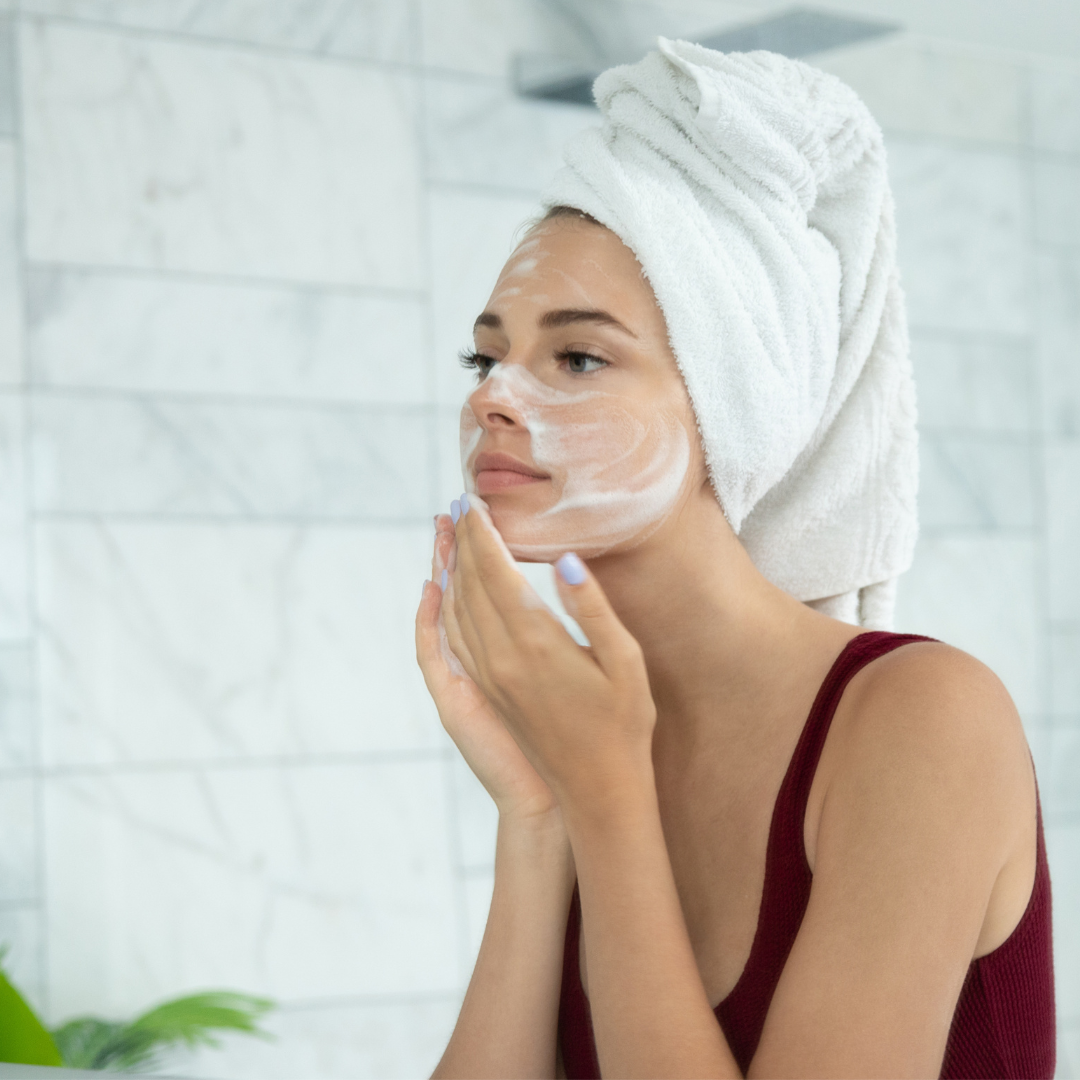
It's something we all do every single day, so you'd think we'd all be dab hands at washing our faces. It's easy right? Arm yourself with the best cleanser and be on your way. But what if I told you that there is in fact an art to it - certain tips, tricks and techniques that would take your cleansing game to a whole new level.
I sat down with CeraVe’s Consultant Dermatologist, Dr Alexis Granite to find out what the experts expect when it comes to cleaning our skin.
Here's what she told me about how to cleanse your face properly...
Cleansing rules to follow
Let's start with when you should cleanse. While some people prefer to simply splash their face with water in the mornings, a simple face wash when you wake up is usually preferable to ensure you clean your skin of the debris from the night (and your pillow).
It goes without saying that a cleanse in the evening is also a must. “Even if you don’t wear make-up, you still need to remove skincare products as well as daily pollutants, dirt, oils and sweat," insists Dr Alexis. "Build-up of these can result in everything from lack of luminosity to clogged pores, dry, irritated skin, breakouts and acne."
"Cleansing properly gives your skin the chance to renew itself," she adds. "Ensures a fresh canvas on which to apply products within your skincare routine, allowing them to penetrate more effectively.”
Rather interestingly, Pamela Marshall, facialist and owner of Mortar & Milk, recently told me that no matter the time of day you should always cleanse after brushing your teeth. That's to ensure that foaming toothpaste doesn't cause irritation to the skin around your chin. Sounds strange, but really makes sense when you think about it, right?
Flannels and cloths are brilliant for expert make-up removal, and it's important to ensure your water isn't too hot. “Try using lukewarm water when you wash/cleanse your face," says Dr Alexis. "Water at this temperature will activate your facial cleanser to properly remove product build-up, dirt and grime on your skin whilst also protecting the skin’s natural oils." Hot water, on the other hand, can harm your delicate skin barrier.
If you like using your fingers, massage the face in circular movements with semi-firm pressure, covering all areas of the face and neck, not forgetting the hairline. You should aim to spend around 60 seconds actually cleansing your face, so don't rush the process.
The importance of double cleansing
Beauty editors agree that a double cleanse at night can really make the difference. The goal of a primary cleanse is to remove product, pollution and build-up from the day on the skin. A secondary cleanse is the 'wash-off' step to actually clean the complexion.
Interestingly, Dr Alexis warns that you do need to be careful with double cleansing and ensure it's done the right way so as not to irritate skin.
“Double cleansing can be over-drying and/or irritating, especially for those with sensitive and/or dry skin," she explains.
She does recommend two steps for make-up wearers though, but a light water-based cleanse is enough: "I recommend removing [make-up] prior to cleansing with a micellar water like CeraVe’s Hydrating Micellar Water, which contains ceramides and niacinamide.”
Which products should you use
There are hundreds of cleansers out there, so which formulas should you be looking for?
For an evening primary cleanse, we'd recommend choosing a cleansing oil or balm, and applying this to dry skin (even with make-up on) before removing with a soft (wet) flannel or cloth. As mentioned, Dr Alexis says some micellar water on a pad can also work for this.
When it comes to your secondary evening cleanse (that 'wash off' step) and your morning cleanse (these can be the same product), the options are limitless. It really just depends on your skin type and preference.
"For dry and sensitive skin, look for cream or lotion-based cleansers that deliver hydration," says Dr Alexis. Cleansers with squalane and hyaluronic acid are elite here, too.
She continues: "For normal/combination skin, I recommend a foaming cleanser." You can get away with ingredients such as salicylic acid (particularly if you are prone to oil or breakouts), but be sure not to double up on your exfoliation in other products if you do so. "Take notice of the ingredients in your cleanser – if they are exfoliating, you need to be careful not to overdo it," notes Dr Alexis.
Shop our best cleansers here, with options for every skin type.







